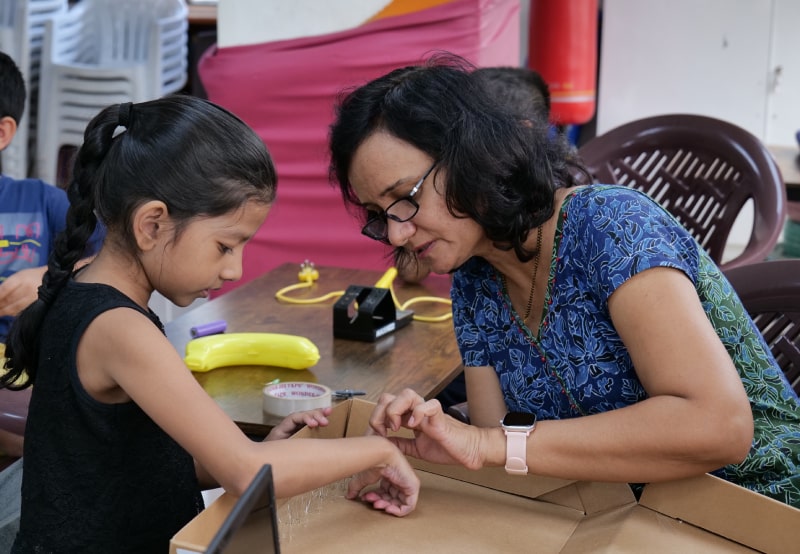Project Based Learning
Real-World Learning for Real-World Success
At UnSchool, we recognize that the conventional classroom model, where learning is often confined to textbooks and lectures, doesn’t adequately prepare students for the challenges and opportunities of the 21st century. To bridge this gap, we have embraced Project-Based Learning (PBL) as a core component of our educational approach. Here’s how PBL at UnSchool fosters a more engaging, relevant, and effective learning experience:

Learning through Doing
PBL is centered on the principle of learning through doing. Students embark on projects that require them to apply their knowledge, skills, and creativity to solve real-world problems or create tangible products. These projects are not mere assignments; they are immersive experiences that provide context, meaning, and purpose to the learning process.

Interdisciplinary Approach
Project-Based Learning transcends the boundaries of traditional subjects. A single project can encompass various disciplines, such as science, mathematics, art, and social studies, fostering a holistic understanding. This interdisciplinary approach mirrors the interconnected nature of the real world, enhancing students’ ability to think broadly and integrate different fields of knowledge.

Collaboration and Teamwork
Projects often involve teamwork, promoting collaboration, communication, and leadership skills. Students learn to work together, delegate responsibilities, negotiate differences, and strive for a common goal. This experience not only enhances interpersonal skills but also reflects the collaborative nature of modern workplaces and communities.

Critical Thinking and Problem-Solving
PBL challenges students to think critically and solve complex problems. They must analyze information, evaluate options, develop strategies, and iterate solutions. This rigorous intellectual process hones their analytical skills and fosters a mindset of continuous improvement and innovation.

Real-World Connections
Projects at UnSchool are often tied to real-world contexts and issues. Whether designing an environmentally sustainable building or organizing a community awareness campaign, students engage with topics that have real significance. This connection to the real world makes learning relevant and compelling, encouraging students to apply their learning beyond the classroom.

Student Autonomy and Ownership
In PBL, students take charge of their learning. They choose projects that align with their interests, set goals, plan their approach, and evaluate their progress. This autonomy fosters motivation, responsibility, and a sense of ownership over their learning journey.
Reflection and Growth
Project-Based Learning is not just about the final product; it’s about the learning journey. Reflection is an integral part of the process, where students assess what they’ve learned, identify challenges, celebrate successes, and glean insights for future projects. This reflective practice cultivates self-awareness and a growth mindset.
Project-Based Learning at UnSchool is more than a teaching method; it’s a transformative educational experience. It aligns with our belief in a learner-centered, active, and authentic education that prepares students not just for exams but for life. It equips them with the skills, attitudes, and mindset to navigate the complexities of the modern world and contribute positively to society.
Join us at UnSchool and experience the power of Project-Based Learning, where education is not about passive memorization but about active exploration, creativity, collaboration, and real-world application. Here, learning comes alive, and students become empowered, engaged, and effective learners, ready to thrive in the 21st century.
